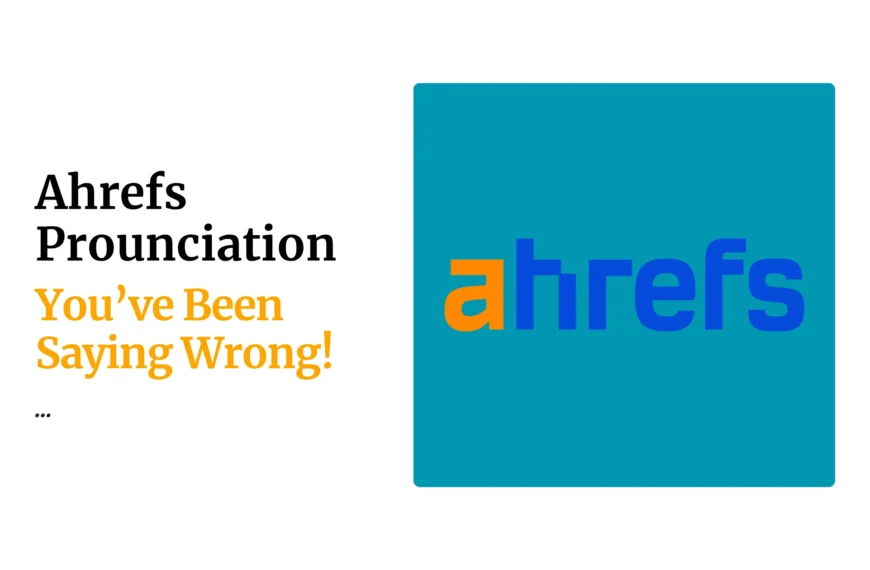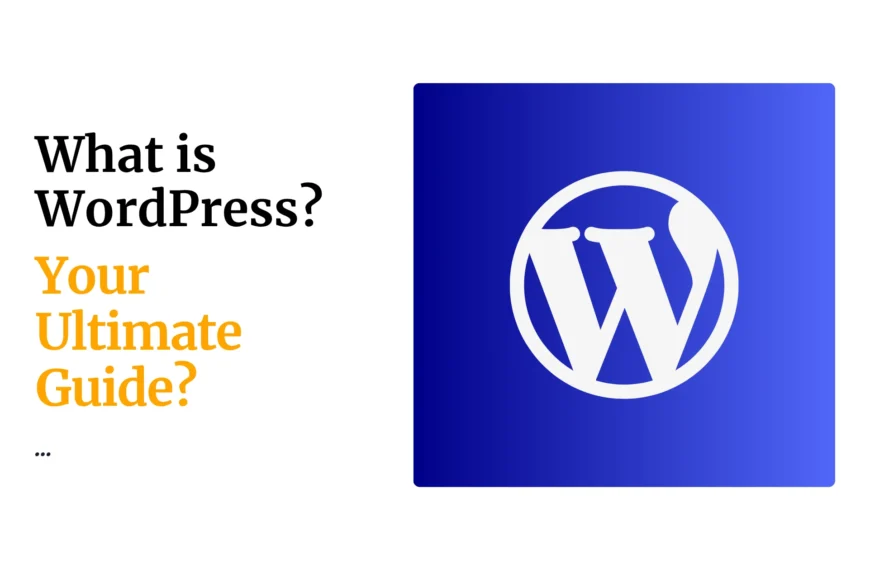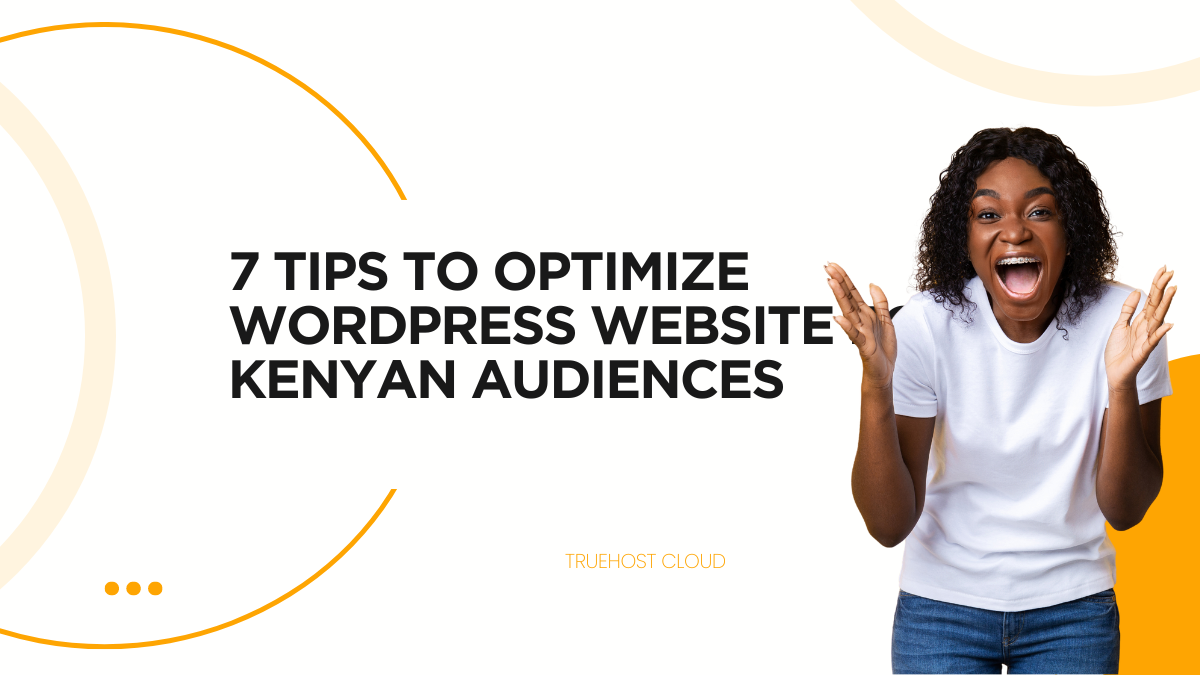Last updated on October 7th, 2024 at 01:45 pm
Have you ever wondered about the cost of hiring a WordPress freelancer in Kenya?
As a business owner or aspiring web developer, understanding the average WordPress freelancer rates in Kenya is crucial for making informed decisions.
In this article, I’m going to dive deep into the world of WordPress freelancing in Kenya, exploring the factors that influence rates, uncovering the latest data, and providing you with actionable insights to navigate this dynamic market.
By the time you finish reading, you’ll have a clear understanding of:
- The current state of WordPress freelancing in Kenya
- Key factors that affect freelancer rates
- Average rate ranges for different skill levels and services
- How to set competitive rates or hire effectively
Key Factors to Consider
When it comes to WordPress freelancer rates in Kenya, several key factors come into play.
Let’s break them down:
Skill Level and Experience
This is the single most important factor affecting freelancer rates.
Here’s how it typically breaks down:
- Beginner freelancers (0-2 years of experience): Often charge lower rates to build their portfolio and gain experience.
- Intermediate freelancers (2-5 years of experience): Command higher rates due to their proven track record and specialized skills.
- Expert freelancers (5+ years of experience): Can charge premium rates for their deep expertise and ability to handle complex projects.
Project Complexity
The complexity of a WordPress project significantly impacts the rates:
- Simple websites (e.g., basic brochure sites): Generally command lower rates.
- E-commerce sites: Require more advanced skills and thus higher rates.
- Custom plugin development: Demands specialized knowledge and attracts higher rates.
- Enterprise-level solutions: Top-tier rates for managing large-scale, complex WordPress implementations.
Market Demand
Supply and demand play a crucial role in shaping WordPress freelancer rates in Kenya:
- High-demand skills (e.g., WooCommerce development, page builder expertise) often command higher rates.
- Seasonal fluctuations can affect rates, with busier periods allowing freelancers to charge more.
- Niche expertise (e.g., specific industry knowledge) can justify premium rates.
Location Within Kenya
Believe it or not, a freelancer’s location within Kenya can significantly impact their rates:
- Nairobi and other major cities: Higher cost of living leads to higher rates.
- Rural areas: Lower overhead costs may result in more competitive rates.
- Tech hubs (e.g., Konza Technopolis): Concentration of talent and opportunities can drive rates up.
Understanding these factors is crucial for both freelancers and clients.
Freelancers can use this knowledge to position themselves effectively in the market, while clients can better appreciate the value they’re getting for their investment.
The Numbers
Now, let’s look at the numbers and see what the data tells us about WordPress freelancer rates in Kenya.
Disclaimer: While I’ve done my best to gather accurate information, note that freelancer rates can be highly variable and may change over time.
According to a 2023 survey conducted by TechMoran, a leading tech publication in East Africa:
| Experience Level | Average Hourly Rate (KES) | Average Hourly Rate (USD) |
|---|---|---|
| Beginner | 500 – 1,500 | $3.50 – $10.50 |
| Intermediate | 1,500 – 3,500 | $10.50 – $24.50 |
| Expert | 3,500 – 7,000+ | $24.50 – $49+ |
These figures provide a general benchmark, but it’s crucial to understand that individual rates can vary significantly based on the factors we discussed earlier.
Comparing these rates to global averages:
- The global average hourly rate for WordPress freelancers ranges from $15 to $120, according to CodeinWP’s 2023 WordPress Pricing Survey.
- Kenyan rates are generally lower, which can be attributed to factors such as:
- Lower cost of living
- Different economic conditions
- Competitive global marketplace
However, it’s important to note that many top Kenyan WordPress freelancers command rates comparable to their global counterparts, especially when working with international clients.
Analysis of the data:
- Wide range: The significant gap between beginner and expert rates highlights the importance of skill development and experience in the Kenyan WordPress market.
- Competitive advantage: Lower average rates can make Kenyan freelancers attractive to international clients, potentially leading to more opportunities.
- Room for growth: As the Kenyan tech ecosystem matures and local businesses increasingly value digital presence, we can expect these rates to rise.
- Niche expertise pays off: Freelancers specializing in high-demand areas like e-commerce or custom plugin development often report rates at the higher end of these ranges.
This data underscores the dynamic nature of WordPress freelancer rates in Kenya.
Both freelancers and clients should use these figures as a starting point, adjusting based on specific project requirements, expertise, and market conditions.
What Are the Average WordPress Freelancer Rates in Kenya?
So, what are the average WordPress freelancer rates in Kenya?
Based on the data and analysis we’ve conducted, here’s a clear and concise answer:
The average WordPress freelancer rates in Kenya range from 500 KES to 7,000+ KES per hour (approximately $3.50 to $49+ USD).
However, this broad range requires some explanation:
- Beginner freelancers typically charge between 500-1,500 KES ($3.50-$10.50 USD) per hour.
- Intermediate freelancers often set their rates between 1,500-3,500 KES ($10.50-$24.50 USD) per hour.
- Expert freelancers command rates of 3,500-7,000+ KES ($24.50-$49+ USD) per hour, with some top professionals charging even more for specialized services.
It’s crucial to understand that these rates are averages and can vary significantly based on factors like:
- Project complexity
- Freelancer’s specific skills and experience
- Client’s budget and project requirements
- Location within Kenya
- Whether the client is local or international
Additionally, many Kenyan WordPress freelancers work on a project basis rather than charging hourly rates.
In these cases, rates are often calculated based on the estimated time and complexity of the project.
Remember, while these average rates provide a useful benchmark, the true value of a WordPress freelancer lies in their ability to deliver quality results that meet your specific needs.
Breakdown
Let’s dig deeper into the nuances of WordPress freelancer rates in Kenya:
Junior vs. Senior Freelancer Rates
Junior Freelancers (0-2 years experience):
- Hourly Rate: 500-1,500 KES ($3.50-$10.50 USD)
- Project-Based: Simple WordPress site setup: 15,000-30,000 KES ($105-$210 USD)
Junior freelancers often:
- Take on smaller, less complex projects
- Work on building their portfolio
- Might require more guidance or have longer turnaround times
Senior Freelancers (5+ years experience):
- Hourly Rate: 3,500-7,000+ KES ($24.50-$49+ USD)
- Project-Based: Custom WordPress development: 100,000-500,000+ KES ($700-$3,500+ USD)
Senior freelancers typically:
- Handle complex, high-stakes projects
- Bring valuable industry insights and best practices
- Deliver more efficient, polished results
Rates for Different WordPress Services
- WordPress Development:
- Basic theme customization: 1,000-2,500 KES/hour ($7-$17.50 USD)
- Custom plugin development: 2,500-5,000+ KES/hour ($17.50-$35+ USD)
- WordPress Design:
- Theme design: 1,500-4,000 KES/hour ($10.50-$28 USD)
- UX/UI optimization: 2,000-5,000 KES/hour ($14-$35 USD)
- WordPress Maintenance:
- Basic maintenance (updates, backups): 5,000-15,000 KES/month ($35-$105 USD)
- Comprehensive support: 15,000-50,000+ KES/month ($105-$350+ USD)
Urban vs. Rural Rate Differences
Location plays a significant role in rate determination:
Urban Rates (e.g., Nairobi, Mombasa):
- Generally 20-40% higher than the national average
- Influenced by higher cost of living and increased competition
Rural Rates:
- Can be 30-50% lower than urban rates
- Affected by lower overhead costs and fewer local opportunities
Example:
A mid-level WordPress developer might charge:
- 3,000 KES/hour ($21 USD) in Nairobi
- 1,800 KES/hour ($12.60 USD) in a smaller town like Nakuru
Understanding these breakdowns helps both freelancers and clients navigate the market more effectively.
Freelancers can position their services strategically, while clients can better assess the value proposition of different freelancers based on their specific needs and budget constraints.
How To Apply These Information
Now that we’ve explored the average WordPress freelancer rates in Kenya, let’s discuss how to apply this information practically.
For Freelancers: How to Set Competitive Rates
- Assess your skill level honestly:
- Review your portfolio objectively
- Seek feedback from peers or mentors
- Consider taking skills assessments on freelancing platforms
- Research your target market:
- Are you focusing on local Kenyan clients or international opportunities?
- What industries are you targeting?
- What are the going rates for your specific niche?
- Calculate your minimum viable rate:
- Consider your living expenses
- Factor in business costs (internet, software, etc.)
- Don’t forget to account for taxes
- Start with project-based pricing:
- Easier for clients to understand the value
- Helps you avoid undercharging for complex tasks
- Gradually increase your rates:
- As you gain experience and positive reviews, incrementally raise your rates
- Inform existing clients of rate changes well in advance
- Offer tiered pricing options:
- Basic, Standard, and Premium packages can cater to different client needs and budgets
- Highlight your unique value proposition:
- Emphasize specialized skills or industry knowledge
- Showcase successful case studies
For Clients: Tips for Hiring WordPress Freelancers in Kenya
- Define your project requirements clearly:
- Detailed project briefs lead to more accurate quotes
- Consider using a project scope template
- Look beyond the hourly rate:
- A higher-priced expert might deliver faster, saving money in the long run
- Consider the total project cost and potential ROI
- Request portfolios and references:
- Review past work relevant to your project
- Don’t hesitate to ask for client testimonials
- Start with a small test project:
- This can help assess the freelancer’s skills and communication style
- It’s a low-risk way to begin a potentially long-term relationship
- Consider location-based rates:
- Freelancers in Nairobi might charge more but could offer easier face-to-face collaboration
- Rural-based freelancers might offer competitive rates for remote work
- Use escrow services for large projects:
- Platforms like Upwork offer payment protection for both parties
- Invest in long-term relationships:
- A freelancer who understands your business can be invaluable
- Consider retainer agreements for ongoing WordPress maintenance and support
By applying these practical tips, both freelancers and clients can navigate the WordPress freelancer market in Kenya more effectively.
Remember, the goal is to find a balance between fair compensation for the freelancer and good value for the client.
Common Misconceptions or Myths
When it comes to WordPress freelancer rates in Kenya, several misconceptions persist.
Let’s debunk some of these myths:
Myth 1: “Kenyan freelancers are always cheaper than international options”
Reality: While average rates in Kenya may be lower, top Kenyan WordPress freelancers often charge rates comparable to their international counterparts.
Quality work commands fair compensation, regardless of location.
Myth 2: “You get what you pay for – low rates mean low quality”
Reality: Rate is not always indicative of quality.
Many talented Kenyan freelancers offer competitive rates due to lower living costs, not because of inferior skills.
Always evaluate a freelancer’s portfolio and reviews, not just their rates.
Myth 3: “Kenyan freelancers lack expertise in advanced WordPress development”
Reality: Kenya has a thriving tech ecosystem with many highly skilled WordPress developers.
Many Kenyan freelancers have extensive experience with complex WordPress projects, including custom plugin development and enterprise-level solutions.
Myth 4: “It’s always better to hire a freelancer with the lowest rates”
Reality: The lowest rate doesn’t always translate to the best value.
Consider factors like:
- Experience level
- Specialized skills
- Communication ability
- Project turnaround time
A slightly higher rate might result in a much better end product and smoother project experience.
Myth 5: “Kenyan freelancers are not reliable for long-term projects”
Reality: Many Kenyan WordPress freelancers build successful long-term relationships with clients.
Reliability is an individual trait, not a national one.
Proper vetting, clear communication, and fair treatment lead to successful long-term collaborations.
Myth 6: “You can’t find specialized WordPress skills in Kenya”
Reality: Kenya’s WordPress community is diverse and skilled.
You can find freelancers specializing in:
- WooCommerce development
- Custom plugin creation
- Performance optimization
- Security hardening
- Multilingual site development
Many Kenyan developers actively contribute to the WordPress core and develop popular plugins.
Myth 7: “Negotiating rates is always necessary to get the best deal”
Reality: While negotiation is common, constantly pushing for lower rates can be counterproductive.
It may lead to:
- Reduced quality of work
- Less motivated freelancers
- Missed opportunities to work with top talent
Instead, focus on finding a fair rate that reflects the value of the work.
By dispelling these myths, we can foster a more accurate understanding of the WordPress freelancer landscape in Kenya.
This knowledge empowers both clients and freelancers to make informed decisions and build mutually beneficial relationships.
Tools or Resources
To help you navigate the world of WordPress freelancing in Kenya, here are some valuable tools and resources:
Platforms for Finding WordPress Freelancers in Kenya
Upwork
- Global platform with a strong Kenyan presence
- Offers escrow protection and time-tracking tools
Fiverr
- Popular for smaller WordPress tasks
- Many Kenyan freelancers offer services here
- Professional network to connect with WordPress specialists
- Use the search function with keywords like “WordPress developer Kenya”
GitHub
- Find Kenyan WordPress developers contributing to open-source projects
- Great for assessing coding skills
Local Job Boards
- Websites like BrighterMonday and PigiaMe often list WordPress freelance opportunities
Tools for Managing Freelance Projects and Payments
Trello
- Visual project management tool
- Great for tracking progress on WordPress projects
Asana
- Comprehensive project management platform
- Useful for complex WordPress builds with multiple components
M-Pesa
- Popular mobile payment system in Kenya
- Convenient for local transactions
PayPal
- Widely used for international payments
- Offers buyer and seller protection
Wave
- Free accounting software for freelancers
- Helps with invoicing and expense tracking
Resources for WordPress Skill Development
- Official WordPress documentation
- Essential resource for both beginners and experts
Udemy
- Offers numerous WordPress courses
- Many are created by Kenyan instructors
- Local communities for networking and learning
- Often organize workshops and talks
Stack Overflow
- Q&A platform for developers
- Great for troubleshooting WordPress issues
WPBeginner
- Comprehensive WordPress tutorial site
- Covers everything from basics to advanced topics
These tools and resources can significantly enhance your WordPress freelancing experience in Kenya, whether you’re a freelancer looking to improve your skills or a client seeking to hire top talent.
Final Thoughts
As we wrap up our exploration of WordPress freelancer rates in Kenya, let’s recap the key points we’ve covered:
- Average rates range from 500 KES to 7,000+ KES per hour ($3.50 to $49+ USD), varying based on experience and specialization.
- Factors influencing rates include skill level, project complexity, market demand, and location within Kenya.
- Data shows a wide range of rates, reflecting the diverse WordPress ecosystem in Kenya.
- Practical applications for both freelancers and clients emphasize the importance of fair pricing and clear communication.
- Common misconceptions about Kenyan WordPress freelancers often underestimate the quality and expertise available in the local market.
- Valuable tools and resources are available to support successful WordPress freelancing relationships.
Looking ahead, the future of WordPress freelancing in Kenya appears bright:
- Growing demand for WordPress services as more businesses go digital
- Increasing specialization among freelancers, leading to higher-value services
- Improved infrastructure enabling more competitive rates and faster project turnaround
- Greater integration with the global WordPress community
For freelancers, this presents opportunities to:
- Develop niche expertise
- Build strong portfolios
- Establish long-term client relationships
For clients, the evolving landscape offers:
- Access to a wider pool of talented WordPress professionals
- More competitive rates for high-quality work
- Opportunities to support the growth of Kenya’s tech ecosystem
Remember, understanding WordPress freelancer rates in Kenya is about more than just numbers.
It’s about recognizing the value of skilled professionals and fostering mutually beneficial partnerships.
Whether you’re a freelancer setting your rates or a client looking to hire, approach the process with respect, clarity, and a focus on long-term value.
What To Do Next
Now that you’re armed with insights into WordPress freelancer rates in Kenya, it’s time to take action:
For freelancers:
- Re-evaluate your current rates based on the information provided
- Invest in skill development to increase your value
- Update your portfolio to showcase your best work
For clients:
- Start your search for a Kenyan WordPress freelancer using the resources mentioned
- Prepare a clear project brief to get accurate quotes
- Consider the long-term value when comparing freelancer rates
For everyone:
- Share your experiences with WordPress freelancing in Kenya
- Join local WordPress communities to stay updated on market trends
- Contribute to discussions about fair pricing and best practices
Have you worked with a WordPress freelancer in Kenya or are you a freelancer yourself?
Share your story in the comments below!
Let’s continue to build a thriving, fair, and innovative WordPress ecosystem in Kenya.
FAQs
To wrap up our comprehensive guide, let’s address some frequently asked questions about WordPress freelancer rates in Kenya:
Q: Are WordPress freelancer rates in Kenya negotiable?
A: Yes, rates are often negotiable, but remember that fair compensation leads to better results. Focus on value rather than just the lowest price.
Q: How do Kenyan WordPress freelancer rates compare to other countries?
A: Kenyan rates are generally lower than those in Western countries but may be higher than some other African nations. However, top Kenyan freelancers often charge rates comparable to global standards.
Q: Is it safe to hire WordPress freelancers from Kenya?
A: Yes, when proper precautions are taken. Use reputable platforms, check references, and consider starting with a small test project.
Q: How can I ensure I’m not undercharging as a Kenyan WordPress freelancer?
A: Research market rates, calculate your costs (including taxes and overhead), and regularly reassess your skills and the value you provide.
Q: Do WordPress freelancer rates in Kenya include revisions and support?
A: This varies by freelancer. Always clarify what’s included in the rate and get it in writing before starting a project.
Q: Are there any certifications Kenyan WordPress freelancers should have?
A: While not mandatory, certifications from WP Elevation, LinkedIn Learning, or specific technology partners (like WooCommerce) can be valuable.
Q: How often should I expect to pay my Kenyan WordPress freelancer?
A: Payment terms vary. Common options include milestone payments, weekly/monthly for ongoing work, or full payment upfront for smaller projects.
Q: Can I find Kenyan WordPress freelancers who specialize in my industry?
A: Yes, many Kenyan freelancers have industry-specific experience. When hiring, ask about relevant portfolio pieces and domain knowledge.
Read also:
 Domain SearchInstantly check and register your preferred domain name
Domain SearchInstantly check and register your preferred domain name Web Hosting
Web Hosting cPanel HostingHosting powered by cPanel (Most user friendly)
cPanel HostingHosting powered by cPanel (Most user friendly) KE Domains
KE Domains Reseller HostingStart your own hosting business without tech hustles
Reseller HostingStart your own hosting business without tech hustles Windows HostingOptimized for Windows-based applications and sites.
Windows HostingOptimized for Windows-based applications and sites. Free Domain
Free Domain Affiliate ProgramEarn commissions by referring customers to our platforms
Affiliate ProgramEarn commissions by referring customers to our platforms Free HostingTest our SSD Hosting for free, for life (1GB storage)
Free HostingTest our SSD Hosting for free, for life (1GB storage) Domain TransferMove your domain to us with zero downtime and full control
Domain TransferMove your domain to us with zero downtime and full control All DomainsBrowse and register domain extensions from around the world
All DomainsBrowse and register domain extensions from around the world .Com Domain
.Com Domain WhoisLook up domain ownership, expiry dates, and registrar information
WhoisLook up domain ownership, expiry dates, and registrar information VPS Hosting
VPS Hosting Managed VPSNon techy? Opt for fully managed VPS server
Managed VPSNon techy? Opt for fully managed VPS server Dedicated ServersEnjoy unmatched power and control with your own physical server.
Dedicated ServersEnjoy unmatched power and control with your own physical server. SupportOur support guides cover everything you need to know about our services
SupportOur support guides cover everything you need to know about our services








